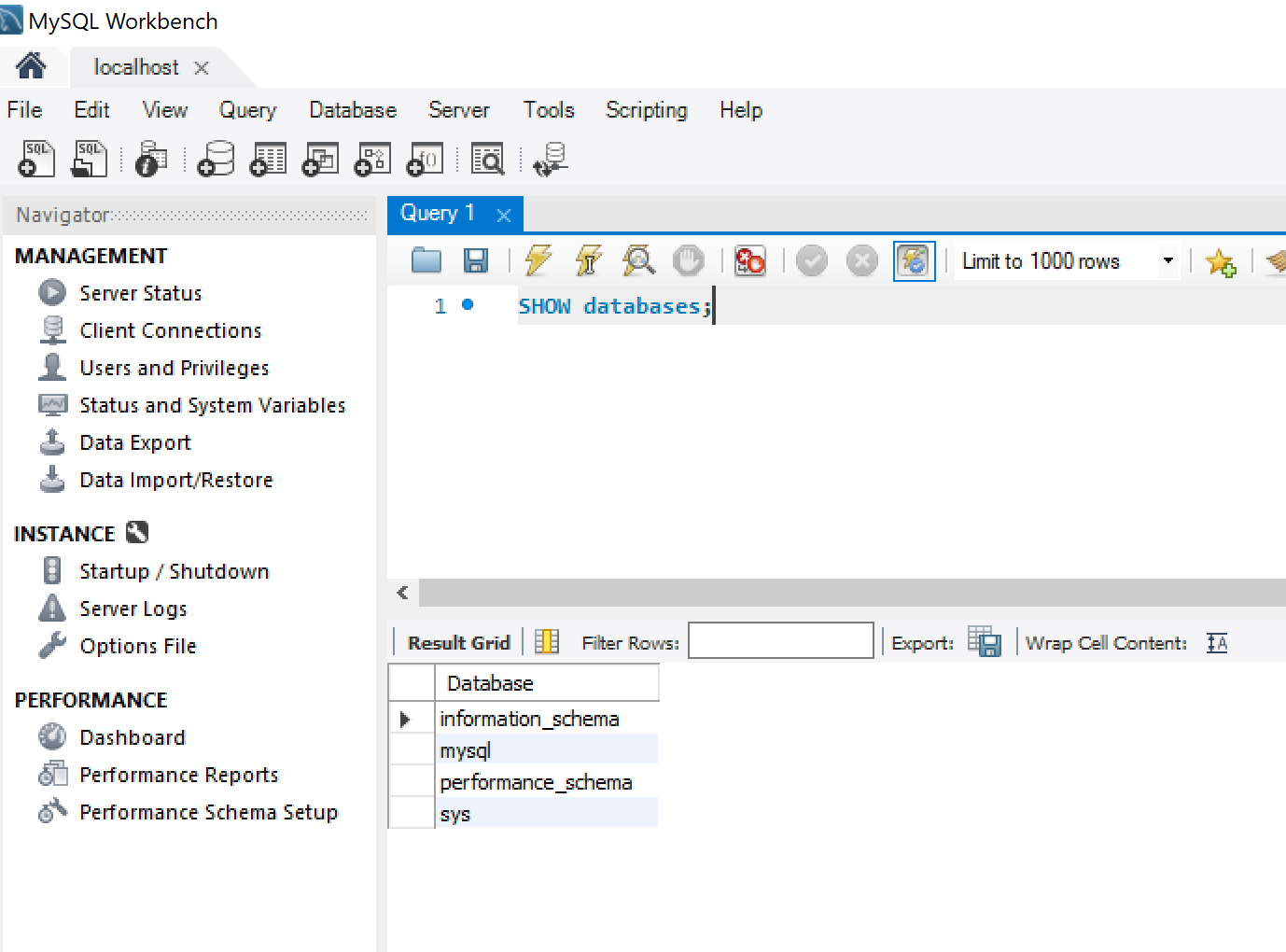Choosing the right file: If you have an online connection while running the MySQL Installer, choose the mysql-installer-web-community file.; If you do NOT have an online connection while running the MySQL Installer, choose the mysql-installer-community file.; Note: MySQL Installer is 32 bit, but will install both 32 bit and 64 bit binaries. (mysql-query-browser-1.1.20-win.msi) MD5: b67ecf3b4e6bc2f6b87ba838b91ce9fb Windows (x86, 32-bit), ZIP Archive: Feb 7, 2006: 4.9M. Download MySQL Server for Mac from the MySQL Community site. Mount the DMG and double click the.pkg file to begin the installation. Mount the DMG and double click the package to begin the installation Step through the installer installer and make a note of your temporary root password. MySQL is the most popular open source database management system. It allows you to quickly download and install and run a powerful database system on almost any platform available including Linux, Windows, and Mac OS X etc. Geeks Worldwide. MySQL Cluster CGE. MySQL Cluster is a real-time open source transactional database designed for fast, always-on access to data under high throughput conditions. MySQL Cluster; MySQL Cluster Manager; Plus, everything in MySQL Enterprise Edition; Learn More » Customer Download » (Select Patches & Updates Tab, Product Search) Trial Download ».
The package is located inside a disk image (.dmg) file that you first need to mount by double-clicking its icon in the Finder. It should then mount the image and display its contents.
Before proceeding with the installation, be sure to stop all running MySQL server instances by using either the MySQL Manager Application (on macOS Server), the preference pane, or mysqladmin shutdown on the command line.
To install MySQL using the package installer:
Download the disk image (
.dmg) file (the community version is available here) that contains the MySQL package installer. Double-click the file to mount the disk image and see its contents.Figure 2.1 MySQL Package Installer: DMG Contents
Double-click the MySQL installer package from the disk. It is named according to the version of MySQL you have downloaded. For example, for MySQL server 5.7.33 it might be named
mysql-5.7.33-osx-.10.13-x86_64.pkgThe initial wizard introduction screen references the MySQL server version to install. Click to begin the installation.
Figure 2.2 MySQL Package Installer Wizard: Introduction
The MySQL community edition shows a copy of the relevant GNU General Public License. Click and then to continue.
From the Installation Type page you can either click to execute the installation wizard using all defaults, click to alter which components to install (MySQL server, Preference Pane, Launchd Support -- all enabled by default).
Although the option is visible, the installation location cannot be changed.
Figure 2.3 MySQL Package Installer Wizard: Installation Type
Figure 2.4 MySQL Package Installer Wizard: Customize
Click to begin the installation process.
After a successful installation, the installer displays a window with your temporary root password. This cannot be recovered so you must save this password for the initial login to MySQL. For example:
Figure 2.5 MySQL Package Installer Wizard: Temporary Root Password
MySQL expires this temporary root password after the initial login and requires you to create a new password.
Summary is the final step and references a successful and complete MySQL Server installation. the wizard.
Figure 2.6 MySQL Package Installer Wizard: Summary
MySQL server is now installed, but it is not loaded (or started) by default. Use either launchctl from the command line, or start MySQL by clicking 'Start' using the MySQL preference pane. For additional information, see Chapter 3, Installing a MySQL Launch Daemon, and Chapter 4, Installing and Using the MySQL Preference Pane. Use the MySQL Preference Pane or launchd to configure MySQL to automatically start at bootup.
Mysql Download Mac
When installing using the package installer, the files are installed into a directory within /usr/local matching the name of the installation version and platform. For example, the installer file mysql-5.7.33- installs MySQL into osx10.13-x86_64.dmg/usr/local/mysql-5.7.33-osx10.13-x86_64/ . The following table shows the layout of the installation directory.
Table 2.1 MySQL Installation Layout on macOS

Mysql Installer Download
| Directory | Contents of Directory |
|---|---|
bin | mysqld server, client and utility programs |
data | Log files, databases |
docs | Helper documents, like the Release Notes and build information |
include | Include (header) files |
lib | Libraries |
man | Unix manual pages |
mysql-test | MySQL test suite |
share | Miscellaneous support files, including error messages, sample configuration files, SQL for database installation |
support-files | Scripts and sample configuration files |
/tmp/mysql.sock | Location of the MySQL Unix socket |
During the package installer process, a symbolic link from /usr/local/mysql to the version/platform specific directory created during installation is created automatically.

